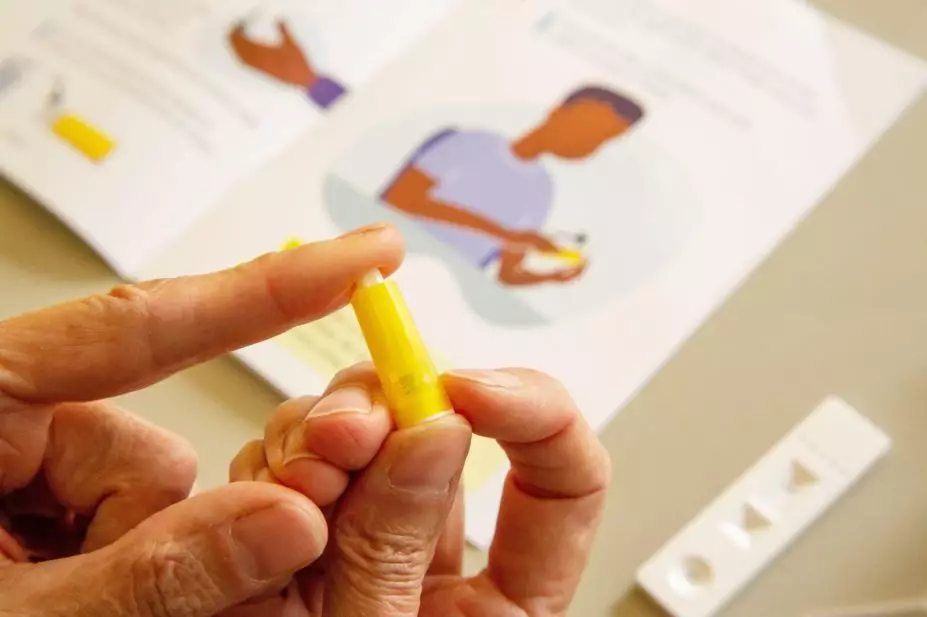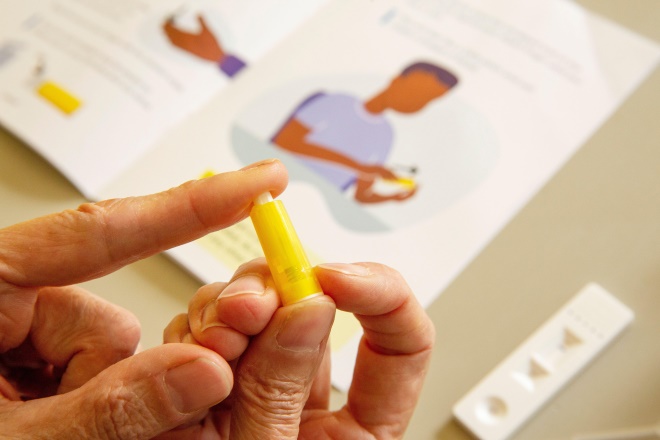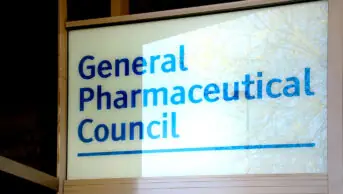
Mike Goldwater / Alamy Stock Photo
Open access article
The Royal Pharmaceutical Society has made this article free to access in order to help healthcare professionals stay informed about an issue of national importance.
To learn more about coronavirus, please visit: https://www.rpharms.com/resources/pharmacy-guides/wuhan-novel-coronavirus

Source: Mike Goldwater / Alamy Stock Photo
The General Pharmaceutical Council has said its position on the provision and sale of the tests comes “in light of current public health advice”
The General Pharmaceutical Council (GPhC) has written to community pharmacies advising them not to provide rapid point-of-care COVID-19 antibody tests to patients, in line with Public Health England (PHE) advice.
In an open letter to all community pharmacies, published on 21 July 2020, the regulator reiterated its position against the “provision and sale of COVID-19 rapid antibody tests from community pharmacies,” calling it “not appropriate”.
The letter said that its position comes “in the light of current public health advice”.
PHE issued advice on 11 May 2020 which said “that use of products that give a very rapid result is not advised”, adding that there is little information on their accuracy and “on how a patient’s antibody response develops or changes during COVID-19 infection”.
However, The Pharmaceutical Journal revealed on 15 July 2020 that 470 community pharmacies were providing rapid antibody tests, manufactured in the UK by Biopanda Reagents and supplied to pharmacies by Pharmadoctor.
“We are aware that there are manufacturers selling and supplying COVID-19 rapid antibody testing kits and that these tests are being offered privately in several community pharmacies across Great Britain,” the letter said.
It added that where it had been made aware that a pharmacy was “providing tests which do not adhere to guidance from the public health agencies in Great Britain”, it had written “to tell them to stop providing these tests”.
“Our inspectors have been signposting pharmacy owners, superintendent pharmacists and pharmacy professionals to relevant guidance and reiterating our position on this topic,” the letter said.
While the GPhC notes that it “does not have jurisdiction over the legality, safety or efficacy of particular types of tests or kits, we do have responsibility… in relation to the standards that must be met by pharmacists and pharmacy technicians in all settings in which they work”.
“They need to be aware of and uphold any recommended national guidance available at the relevant time, for example the advice issued by Public Health England,” the letter continued.
PHE confirmed on 20 July 2020 that it was standing by its advice, despite a report presented to the government’s Scientific Advisory Group for Emergencies, which claimed that the tests are “performing well”.
Graham Thoms, chief executive of Pharmadoctor, told The Pharmaceutical Journal that the company had received a “huge number of pharmacist calls and emails” in relation to the GPhC letter, adding that “pharmacists are raging at the GPhC stating that they don’t feel they are trusted to deliver this professional service”.
In an open letter to the GPhC
, Thoms said the PHE advice “is now out-of-date and inappropriate since it takes no account of recent developments”.
“The PHE advice also takes a one-size-fits-all approach, conflating a number of very different sorts of tests and testing procedures,” he said.
“As a result, the use of reliable rapid antibody tests is being stifled to the detriment of healthcare professionals and the public.”
The letter responds to each of the points made in the PHE guidance, but highlights that concerns around “the evolution of immune response” are the same for all antibody tests – including those conducted in a lab “which have been ‘validated’ by PHE”.
Thoms’s letter adds that the company has supplied over 70,000 antibody tests to healthcare professionals across the UK, and community pharmacists are “best placed” to communicate to patients “that the presence of COVID-19 antibodies is not a guarantee of immunity to the virus”.
The Pharmaceutical Journal has approached the GPhC for comment.


